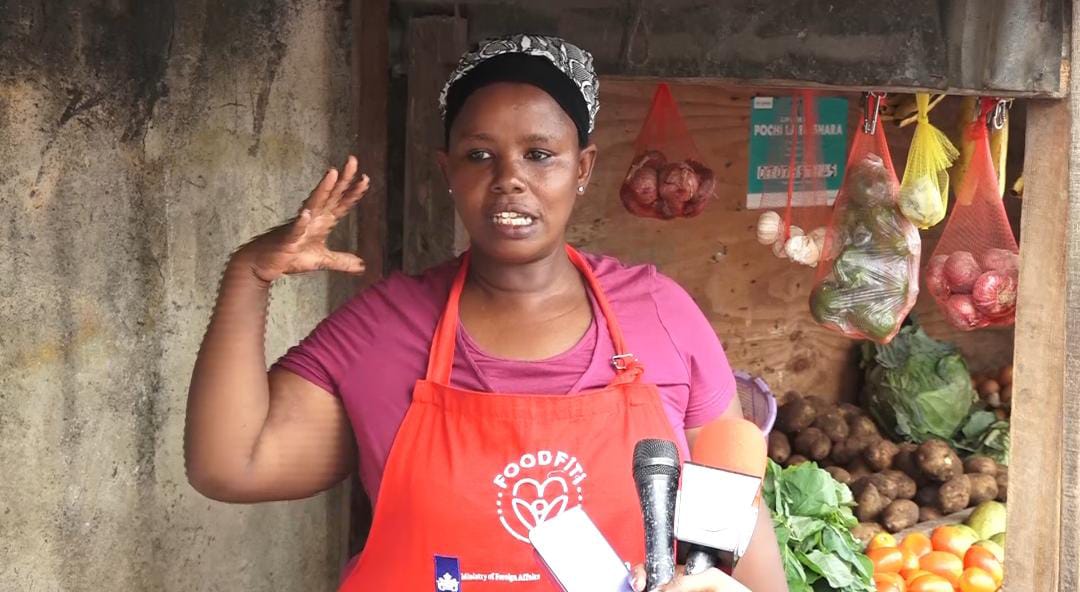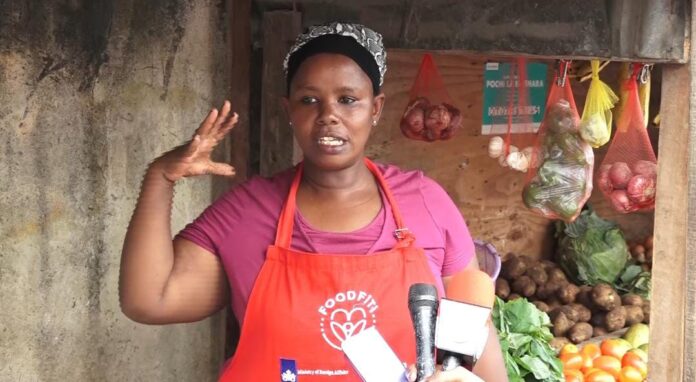|
Getting your Trinity Audio player ready...
|
By Jane Meza
Mombasa County, Kenya: The County Government of Mombasa, in collaboration with the Global Alliance for Improved Nutrition (GAIN), is taking significant strides to improve food safety and hygiene standards, particularly among small-scale traders and vendors.
Through joint training sessions, these vendors are being equipped with the knowledge and skills to maintain high hygiene standards and operate responsibly. This initiative aims to safeguard public health and ensure that consumers have access to safe and nutritious food.
According to John Mungo’o, representing GAIN the project has been implemented in five counties: Mombasa, Nairobi, Nakuru, Kiambu, and Machakos. They have already registered 1400 mama mbogas with a target of reaching 2300 in the county and 10,000 nationwide.
The project aims to improve the livelihoods of these vendors by providing training in marketing strategies, food safety, and hygiene. 23% of the resources will be invested directly into training vegetable vendors in Mombasa.

Hildergard Wasike, the County Public Health Officer, said the County’s Public Health Officials are also actively engaging with hotels and food handlers, enforcing strict health regulations. Medical certifications, regular inspections, and official certificates are being issued to guarantee adherence to these standards.
“We encourage people in Mombasa to eat more vegetables. They are a great source of vitamins, which can boost your immune system. Vegetables are packed with vitamins A and C, and fiber, which are all good for your health. They can help lower cholesterol and reduce the risk of heart disease. Vitamin A is also great for your eyes and skin, while potassium is good for your overall health,” said Ms. Wasike.
As the festive season approaches, the county government is urging residents to prioritize their health by consuming quality food, dining at certified establishments, and maintaining clean surroundings to prevent food poisoning and other health risks.
Hildergard Wasike, emphasized the importance of these initiatives. “We have been working closely with GAIN to train our traders to maintain high standards of hygiene and ensure they work in a clean environment,” she noted.
GAIN, a global organization dedicated to tackling malnutrition, has been actively working in Kenya since 2010. Their current project, “Vegetables for All,” aims to encourage increased vegetable consumption.
“Research shows that we should eat 400 grams of vegetables and fruits daily, but the amount we consume is less than 130 grams,” said John Mungo’o, representing GAIN. “So we have quite a journey to sensitize people countrywide about the importance of consuming more vegetables.”
GAIN’s efforts in Mombasa involve working with various stakeholders, including the Department of Public Health and small-scale vegetable vendors. They have registered 2,400 vegetable vendors and provided them with training on food safety, hygiene, and business management.
GAIN has introduced the market facilitator model to address the challenges faced by vegetable vendors, such as early morning market trips. Market facilitators purchase produce early in the morning and deliver it directly to vendors’ stalls, saving them time and effort.
Safari Ali, a market facilitator, has witnessed firsthand the benefits of this initiative. He has seen his customer base grow and his profits increase significantly. “As a market facilitator, I simplify vegetable vendors’ lives and streamline their transportation of goods from the market,” he said.
Nancy Shithaiga, vegetable vender, also shared her positive experience: “I have become more efficient with my time because the market facilitator delivers vegetables directly to my stall. In the evening, I simply send a list of what I need, and by morning, everything is delivered.” Said Shithaiga.
By improving food safety, hygiene, and the efficiency of the market system, these initiatives are not only benefiting the health of the community but also empowering local businesses and contributing to economic growth.














